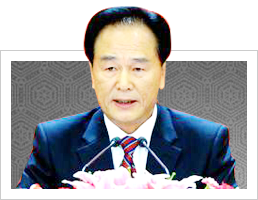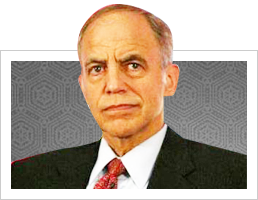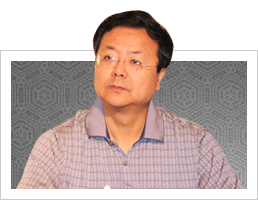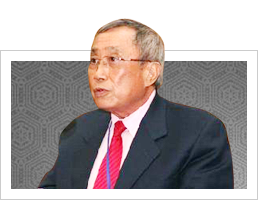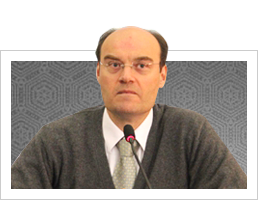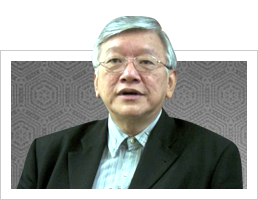World dialogue on the Chinese Dream
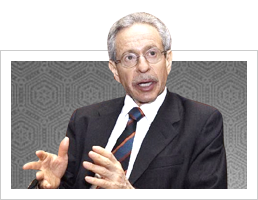
Dr. Robert Lawrence Kuhn, author of How China’s Leaders Think and the biography of former President Jiang Zemin, has long-term relationships with China’s leaders and the Chinese government.
The Third Plenum and The Chinese Dream
The Third Plenum of the 18th CPC Central Committee provides a transformative vision for China and as such paves the road to the Chinese Dream. In his explanatory address to the CPC Central Committee, President Xi Jinping said, “we must waste no time in deepening reform in important areas with even greater political courage and wisdom, firmly do away with all ideological concepts.” He stressed that “the development of practice is boundless, liberated thoughts are boundless, reform and opening up are boundless as well; there is no way out in pausing and withdrawing, reforming and opening up only has a progressive tense, not have a perfect tense.” These are the strongest words of reform in a generation, a public commitment that sets a high bar to benchmark policies.
The list is stunning—any one of which, by itself, would be significant: a “decisive role” for the market in allocating resources, private investment in new sectors, state-owned enterprise reform, facilitating small and mid-sized firms; market pricing of commodities (oil, gas, water, electricity, telecommunication services); financial liberalization of interest rates, capital account changes enabling international investments in both directions; China (Shanghai) Free Trade test area; fiscal structural reform (including reducing revenues from land sales), local government reform; integrated systems and mechanisms for urban and rural development, rural land reform (protecting farmers’ rights), improving migrant workers rights; enhancing consultative democracy, increasing mass evaluation and feedback mechanisms; judicial system reform (standardization, thus reducing local influence); strengthening anti-corruption mechanisms; increasing environmental protection; relaxing the one-child policy; eliminating the labor camps; etc. The list goes on. Though implementation is complex and will take years, for a major nation, this is remarkable.
Looking backwards, future historians will likely assess the Third Plenum of the 18th CPC Central Committee in 2013 as a visionary milestone in much the same way as they do the Third Plenum of the 11th CPC Central Committee in 1978, when Deng Xiaoping initiated China’s reform and opening up. No one will ever underestimate the axial significance of Deng’s changing China’s focus from ideological struggle to economic development. Likewise, no one will ever underestimate the transformative complexity of Xi’s changing China across a broad spectrum of economic, social and governmental sectors.
The result is a blueprint for China’s future. It does not guarantee success but it defines what China’s leaders now describe as success. Simply put, the Resolution of the Third Plenum provides substance for The Chinese Dream.
In conclusion, it is good that scholars develop diverse taxonomies for The Chinese Dream. In this manner all can explore its theoretical foundations and augment its practical applications, a process that will at the same time counter cynics and refute critics, and thereby facilitate, in the words of President Xi, “the great rejuvenation of the Chinese nation.”
By rejuvenating China, The Chinese Dream benefits the entire world.
Connotations of Chinese Dream
Inspired by the Chinese Dream, more and more people have begun to chase their own dreams, including dreams to receive better education, start businesses, purchase homes and get rich. People firmly believe that as long as they work hard, their dreams would come true. [more]
Chinese dream and China's governance
A great deal will depend on how Xi Jinping will actually implement the core features of the program he has laid out and how he will seek to create incentives and constituencies to support his programmatic goals.In sum, President Xi has now made very clear where he stands and where he wants the country to go under his leadership, and he has achieved wide-ranging endorsement of this overall program. [more]
Chinese Dream includes strong PLA
The PLA as a pillar of State security follows the trend of the times and follows a principle that is different from colonial aggression and expansion. And China firmly believes in the principles of peace, cooperation and development of military ties with other countries. [more]
The Chinese dream and peaceful development
The most difficult issue in the region now is the the relationship between China and Japan regarding overlapping claims on the Diaoyu, or Senkaku, islands group. The problem is residual from World War II, and the historical part of the issues is complicated. That is why Japan PM Abe’s revisionist statement on World War II and its impact does not help. [more]
The year of Chinese Dream
Distinct from the American Dream, the Chinese Dream cannot be a narrative of pure newness. It is the imagining of a better future with the memory of 4,000 years of history, a movement of renaissance expressed in the vision of "civilizational China". [more]
Defeat challenges, realize Chinese Dream
High economic growth in recent decades may have made China more confident of realizing the Chinese Dream, but the country's new leaders face serious challenges that could hamper their efforts to realize the goal.First and foremost is the need to fight widespread corruption. Making this his main priority, President Xi warned that corruption could lead to "the collapse of the Party and the downfall of the State". [more]
World dialogue on the Chinese Dream
The “Personal Chinese Dream” focuses on the well-being of individual Chinese citizens and thus modifies traditional notions of the primacy of the collective over the individual. The dream of the Personal is balanced with the dream of the National. In fact, the fulfillment of The Personal Chinese Dream constitutes a good part of what it means to fulfill the National Chinese Dream. [more]
Making a nation's dream come true
Promoting Chinese concepts in the rest of the world is not very difficult - stop translating key Chinese terminologies (at best, give the appropriate or closest meaning and continue with the Chinese terminology). If kung fu, wushu, rujia, shengren, junzi can be understood and accepted by the outside, why not zhongguo meng? Once you translate a Chinese term you give away the definition of thought. [more]

